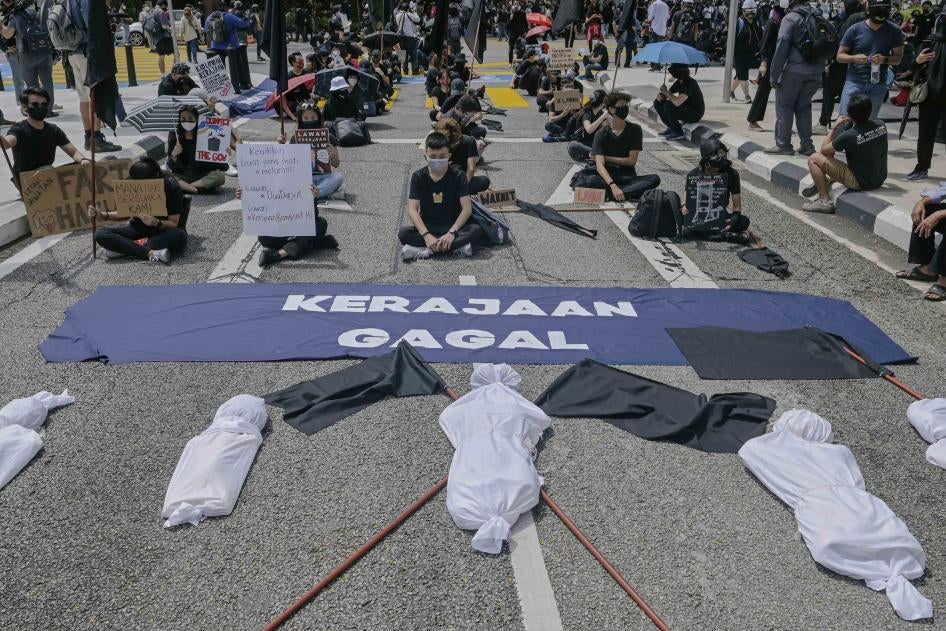(New York) – The Malaysian government used heavy-handed tactics in 2021, arbitrarily arresting critics of the government, pursuing anti-migrant policies, and bolstering threats against lesbian, gay, bisexual, and transgender (LGBT) people, Human Rights Watch said today in its World Report 2022. In a year of political instability, Prime Minister Muhyiddin Yassin resigned in August, and was replaced by Ismail Sabri and his Barisan Nasional coalition, but there was no improvement in the government’s approach to human rights.
“Freedom of speech, peaceful assembly, and the press have all come under attack in Malaysia in 2021,” said Linda Lakhdhir, Asia legal advisor at Human Rights Watch. “The government should stop using investigations to harass its critics and respect everyone’s right to peacefully express their views.”
In the 752-page World Report 2022, its 32nd edition, Human Rights Watch reviews human rights practices in nearly 100 countries. Executive Director Kenneth Roth challenges the conventional wisdom that autocracy is ascendent. In country after country, large numbers of people have recently taken to the streets, even at the risk of being arrested or shot, showing that the appeal of democracy remains strong. Meanwhile, autocrats are finding it more difficult to manipulate elections in their favor. Still, he says, democratic leaders must do a better job of meeting national and global challenges and of making sure that democracy delivers on its promised dividends
Malaysian authorities have used broadly worded laws to investigate dozens of activists, including a graphic artist, a political cartoonist, the creators of a short, animated film about police brutality, a refugee rights activist, journalists, people peacefully protesting the government’s handling of the Covid-19 pandemic, and many others.
In February, the Federal Court of Malaysia, the country’s highest court, held online news portal Malaysiakini in contempt of court for five comments posted by readers, even though the portal removed the comments shortly after being notified of their presence. In July, the court upheld a defamation ruling against Malaysiakini in a decision that narrowly construed the common law public interest defense, posing a serious risk to media freedom.
Police abuse of suspects in custody continues to be a serious problem, as does a lack of accountability for such offenses.
The government has not acted on discrimination against LGBT people, which remains pervasive and appears to be on the rise. The authorities have proposed a range of changes to Sharia (Islamic law) regulations that, if passed, would harm LGBT people, including harsher sentencing for same-sex conduct and gender expression. The treatment of Nur Sajat, a transgender woman who fled Malaysia to escape harassment and charges of “insulting Islam” for her attire and later received asylum in Australia, highlighted the abuse and discrimination faced by Malaysia’s transgender population.
Over 179,000 refugees and asylum seekers, mostly from Myanmar, are registered with the United Nations refugee agency (UNHCR), but they are not granted legal status and remain unable to work or enroll in government schools. The immigration authorities conducted repeated raids and detained thousands of undocumented workers, despite concerns that doing so would discourage them from seeking vaccination or treatment for Covid-19. The government has denied UNHCR access to immigration detention centers since August 2019, and the home minister has rejected calls for access.








